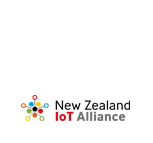2020 has certainly brought its challenges. As New Zealand reopens, the world economy is emerging forever changed and there is a need for a safe and successful economic recovery for all. One of the keys to a genuinely inclusive recovery is access to jobs. Within only a few months, COVID-19 has provoked a massive demand shock, setting off job losses that far exceed the scale of the Global Recession a decade ago. The challenges ahead of New Zealand reach beyond the immediate pandemic.
Data shows that two years’ worth of digital transformation have been concentrated into just two months. Although recent recessions differed in their causes, each followed a trend of shedding low-skilled jobs and gradually replacing them with less automatable roles. This pattern is poised to repeat itself, with an added emphasis on a jobs recovery that requires an increasing focus on digital skills. With continued consumer and employee reliance on almost “remote everything,” we can expect digitisation of the economy to continue to advance at an accelerated speed. And as companies respond to a recession by increasing efficiency, this need for digital transformation will increase even further. Digital technologies will be key to narrowing the divide, not only because they can expand the reach and accessibility of training, but because proficiency in these tools is in top demand.
The issues we need to solve are not trivial. The pandemic has shined a harsh light on what was already a widening skills gap around the world – a gap that will need to be closed with even greater urgency to accelerate economic recovery. As is often the case, the biggest brunt of this downturn is being felt by those with lower incomes, younger workers, women, and underrepresented minorities.
Introducing a Global Skills Initiative
To help address this need, New Zealand IoT Alliance member Microsoft has launched a global skills initiative aimed at bringing more digital skills to 25 million people worldwide by the end of the year. Aimed at those people hardest hit by job losses, including those with lower incomes, younger workers and individuals who have less formal education. It provides free access to content in LinkedIn Learning, Microsoft Learn, GitHub Learning Lab, plus certifications and job seeking tools. In addition, Microsoft is backing the effort with $20 million in cash grants to help non-profit organisations worldwide assist the people who need it most.
Also relevant are the IoT School and Future Ready programme, these both have a multitude of offerings from beginner to advanced, and aim to assist you with how and where IoT could fit into your organisation.
Navigating these challenges will require a renewed partnership between stakeholders across the public, private and non-profit sectors. We will need the business acumen of New Zealand enterprise, the entrepreneurship and innovation from startups and universities, and the power of investors supporting future innovation.
If there is one country that has the innovation, resources and passion to make the difference, it will be New Zealand, and we look forward to seeing New Zealand leading the path!
New Zealand IoT Alliance Annual Meeting Tuesday 13 October
A reminder to our members to please ensure that you attend our Annual Meeting by video conference on Tuesday 13 October at 4pm. The new Executive Council members will be announced and we will discuss plans for the year ahead. Register here. This is a member-only event.
Ngā mihi,
The team at the NZ IoT Alliance






